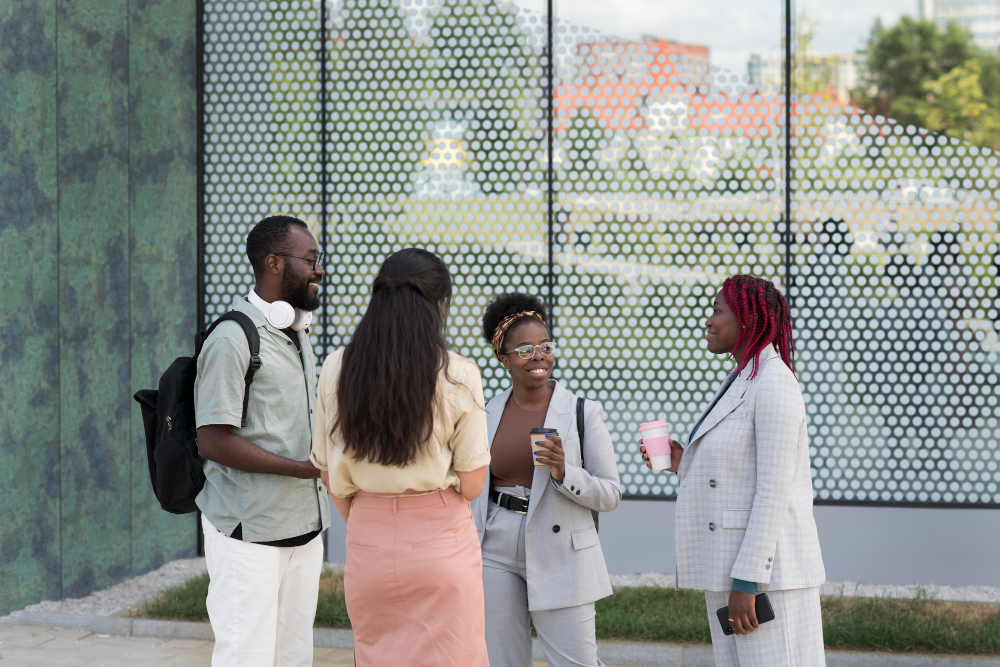Artificial Intelligence (AI) has swiftly moved from the realm of science fiction into everyday reality. Across the world, intelligent systems now diagnose diseases, write news articles, analyze financial data, recommend what we watch, and even influence what we believe. The transformative potential of AI is undeniable—it promises to drive efficiency, innovation, and economic growth. Yet beneath this technological optimism lies a growing concern: how do we ensure that AI systems remain safe, ethical, and beneficial to humanity?
The question of AI safety is no longer limited to engineers or computer scientists. It has become a societal concern that affects jobs, privacy, democracy, and even our sense of humanity. As the world becomes increasingly reliant on algorithmic systems, the need for ethical reflection and responsible governance grows stronger—especially in regions like Africa, where the rapid adoption of technology often outpaces policy and regulation.
Understanding AI Safety Beyond Technology
When people hear “AI safety,” they often imagine futuristic robots or catastrophic scenarios where machines rebel against humans. In reality, AI safety begins with the everyday systems we interact with—facial recognition tools, social media algorithms, predictive policing systems, or automated job screening software. The danger is not always dramatic; it’s often silent, hidden in lines of code that amplify inequality or distort truth.
AI safety, therefore, is not just about preventing machines from becoming too powerful. It’s about ensuring that AI systems operate in ways that align with human values, fairness, and accountability. This includes reducing algorithmic bias, preventing misinformation, protecting user data, and ensuring that automation doesn’t displace workers without social safety nets.
In Africa, the implications are profound. Many AI tools imported from abroad are trained on non-African data, leading to systems that misinterpret local languages, contexts, or identities. Facial recognition systems have been shown to perform poorly on darker skin tones; automated credit scoring models may disadvantage informal workers; and unregulated data collection raises concerns about digital colonialism. In essence, the continent risks becoming a testing ground for technologies it did not design, yet must live with.
The Human Cost of Unsafe AI
When AI systems go wrong, they don’t just make technical errors—they affect real lives. In 2019, a study revealed that commercial facial recognition tools misidentified Black women at rates far higher than white men. The consequence of such bias, when applied to law enforcement or hiring, is devastating. Similarly, algorithms that decide who gets loans, jobs, or medical attention can reinforce social inequalities if they are not carefully monitored.
Beyond bias, AI-generated misinformation poses another serious threat. Deepfake videos, automated bots, and AI-generated propaganda can distort public discourse and undermine democratic institutions. During elections, such technologies can be weaponized to manipulate public opinion, erode trust, and sow division.
In the African context, these risks are amplified by limited digital literacy and weak regulatory oversight. Without strong mechanisms for accountability, citizens are vulnerable to manipulation, surveillance, and exploitation. The poorest and most marginalized—those least able to challenge unfair outcomes—often bear the brunt of AI’s unintended harms.
Trust is the foundation of all human systems, and when technology erodes that trust, society suffers. Unsafe AI undermines confidence in innovation, weakens democratic institutions, and fuels social tension. Therefore, AI safety must be understood as a public good—a shared responsibility that demands collective vigilance.
Africa’s Opportunity to Lead in Responsible AI
While much of the global debate on AI safety has been dominated by Western and Asian perspectives, Africa holds a unique opportunity to shape a more inclusive and ethical future for AI. The continent is not just a consumer of technology; it can also be a moral compass in the global AI conversation.
By embedding social values, cultural diversity, and community participation into AI development, Africa can champion a new paradigm: human-centered AI. This means building systems that reflect local realities—languages, economies, and traditions—while prioritizing the well-being of people over profits or power.
Several African organizations and researchers are already working to ensure this future. From AI4D Africa’s responsible AI network to local innovators applying ethical data practices, the seeds of a safety-first mindset are taking root. But to scale impact, collaboration is essential—between governments, academia, startups, and civil society.
Moreover, Africa can learn from the missteps of others. While many developed countries now struggle to retrofit ethics into their technologies, Africa can start right—by integrating safety, transparency, and accountability from the design stage. This proactive approach can help prevent the continent from repeating global mistakes in surveillance, misinformation, and algorithmic discrimination.
Building a Culture of AI Safety
Creating a culture of AI safety requires a multi-layered approach that involves education, governance, innovation, and awareness.
1. Education and Public Awareness:
Citizens must understand how AI affects their lives. Public education campaigns, online safety programs, and media literacy initiatives can help people recognize and challenge harmful uses of AI.
2. Ethical Standards for Developers and Startups:
Tech companies—especially emerging African startups—should commit to transparency in how their algorithms make decisions. Establishing voluntary codes of ethics or certification systems for responsible AI can set a benchmark for trust.
3. Government Regulation and Oversight:
Policymakers must balance innovation with protection. Regulations should promote open data, fairness, and accountability without stifling creativity. Data protection authorities can also play a key role in monitoring AI deployment across sectors.
4. Collaboration Across Sectors:
Partnerships between academia, private sector, and civil society can lead to independent audits, ethical review boards, and safety testing labs. Such cross-sector collaboration ensures that no single entity controls the narrative of AI development.
5. Inclusive Design and Local Contexts:
AI systems must reflect the diversity of the people they serve. Local language datasets, indigenous knowledge systems, and participatory design methods can help create safer, more culturally aligned technologies.
Conclusion – Safe AI for a Safe Future
The rise of AI represents one of humanity’s greatest achievements—but also one of its most serious responsibilities. As intelligent systems continue to shape economies, politics, and human relationships, the need for safety becomes moral, not just technical.
For Africa, this moment is defining. By prioritizing ethics, inclusivity, and safety, the continent can chart its own course—one that protects human dignity while unleashing innovation. The goal is not to fear AI, but to govern it wisely, ensuring it amplifies our strengths rather than our weaknesses.
AI should never replace human values; it should reflect them. The future of AI safety lies not only in the codes we write, but in the consciences we cultivate. To protect humanity in the age of intelligent machines, we must all take responsibility—for the systems we build, the data we share, and the societies we shape.
Only then can we create a world where technology empowers every individual, strengthens trust, and safeguards the collective good.




